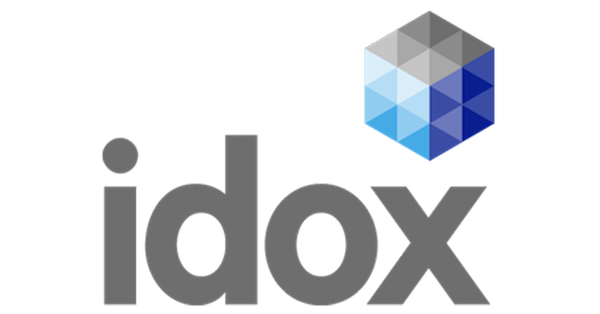Navigating the digital transformation journey for local authorities
For many years local authorities have been navigating their journeys towards digitisation. Particularly since the launch of the government’s Cloud First policy, local authorities all have a similar goal to reap the benefits of digital transformation. Yet levels of digital maturity vary greatly throughout the country. Some councils have made great strides in adopting smarter, digital solutions, while others are in the early stages of digitisation with many still using legacy systems despite their strong desire for change.
There are several barriers causing hesitancy among local authorities to digitise further, including budget constraints, concerns around disruption, the challenge of recruiting in-house skills, questions over data security and many more. But as councils seek new ways to innovate and improve front-line service delivery in a secure, compliant and cost-effective way, the rate of digital adoption within the local authority sector continues to climb.
For over 30 years, Idox has supported local government customers in adopting innovative digital solutions, providing the digital foundations for 90% of local authorities across the UK. Scott Goodwin, Divisional Director for Land, Property & Public Protection, discusses Idox’s successful growth story and how it has helped local authority customers navigate their digital transformation journeys and overcome the complex public sector challenges they face.
Digital maturity and increasing demands
While levels of local authority digital transformation have been advancing at varying paces, the unprecedented impact of the pandemic was a catalyst for rapid change with innovative use of data at a local level. In the face of a public health crisis, local authorities had no choice but to adapt and deploy vital online services to keep residents safe. But with varying levels of investment, skill and preparedness across councils, those local authorities with less established digital practices have been on the back foot, with some facing difficulties sustaining such change.
Idox has been a public sector partner for over three decades, and during that time, the sector has experienced significant operational shifts. The core functionality of our Uniform solution has been fundamental to local authority case management, ensuring systems are managed and optimised in line with future legislative requirements. But local authority need has evolved to be far more involved and complex. We have, therefore, taken proactive steps to deliver a total solution that addresses every perspective, from an efficient legislatively-driven back office to
35% Government CIOs are planning to reduce investments in legacy infrastructure
supporting councils to provide an enhanced consumer experience to citizens, as well as assuring compliance and security. And with Idox Cloud being the UK’s first 100% cloud regulatory services solution, we are at the forefront of delivering innovative software that enables local government to grow and evolve without limits.
28% UK local government bodies utilising Idox cloud services for the regulated environment
As such, despite local government’s initial steady progress and barriers to adoption, there is evidence of a positive shift in local authority intention across the nation to capitalise on the benefits of digitisation and moving to the cloud.
Gartner’s 2022 CIO Survey found that 54% of government CIOs expected to allocate more funding to cloud platforms in 2022, with 35% having planned to reduce investments in legacy infrastructure. Additionally, UK government IT spending is estimated to grow by 6.9% in 2023, rising from £25,532 million in 2022 to £27,289 in 2023.
This impressive anticipated growth in government IT investment is already a reality, with Idox customers spearheading the cloud journey for local authorities – Idox currently delivers cloud services to 28% of all UK local government bodies. In Scotland, 100% of local authorities currently use Uniform for planning, with 21% using the hosted version.
Drivers for change
There are several reasons for this positive shift. Whether on-premise, hybrid or cloud infrastructure, local authorities need the tools to securely and efficiently deliver effective services to citizens. As councils continue to face mounting pressures to meet the rising demand for services with diminishing budgets, they are all working toward the same target of modernising their processes to unlock efficiencies, cost savings and improved services. As a result, the increased use of digital solutions has gathered momentum, with the value of data-driven innovation clear to see, but councils recognise their limitations in sustaining these practices in-house.
With overwhelming pressures on IT teams to deliver more, faster, and improved online services to citizens, in many local authorities, the IT management function has not been able to scale proportionally to the requirements of the services they have to deliver digitally. Guaranteeing regulation, compliance and security standards are met while ensuring applications are managed, optimised and backed up takes significant resources and skill that many authorities struggle to recruit. And with budgets stretched more than ever, local authorities are increasingly turning to managed services that can deliver the outcomes they need cost-effectively. With IT support functions including data storage, maintenance, software patches, and security, all managed and executed remotely by an expert partner, they can focus efforts on public services with peace of mind that the back-end IT support is taken care of.
South Thames Gateway Building Control
After deploying Idox Cloud for Building Control, South Thames Gateway Building Control Partnership (STG) achieved a 37% increase in productivity with a restructured and simplified case management system. The software helped to save 85% of the team’s administration time as officers can easily access and update real-time data when on-site, including viewing calendars and case notes, producing inspection reports and emailing customers directly. And, by helping the team stay on top of deadlines, Idox Cloud helped STG improve its plan assessment turnaround time within target timescales from 70/71% in 2019/20 to 93.5% in 2021 – demonstrating just some of the benefits of a centralised, cloud-based system.
All local authorities work towards the same goal and outcomes, but their means differ. Some are looking to the cloud, and others have invested in their own data centres with a strong commercial framework, so it makes sense for their cost model to have an in-house system.
No matter the setup, councils are all looking to execute responsive and resilient digital government by harnessing advanced technologies to deliver improved services for citizens. And with 64% of Idox’s Uniform customers on-premise, we have flexible options to suit every strategy and infrastructure setup.
Mendip District Council
Mendip District Council saw a significant increase in planning application numbers and the number of enforcement complaints. Keen to modernise and streamline its processes, it needed a robust and stable system built around the additional support a managed service provider would provide. The benefits of migrating from on-premise to a hosted solution are clear. By maintaining and hosting its Uniform cloud software, Idox’s managed services team provide consistent additional key skills and support, along with a higher degree of resilience for the system as a whole. The council has seen a 70% increase in efficiency savings on time spent completing validations, each now taking 3 – 4 days, compared with 15 – 20 days previously. Officers are also saving around 7.5 hours per week when processing application decisions.
Future growth and innovation
As digital competence and engagement develop across the nation, the volume of data is growing exponentially. The software solutions Idox provides to customers are capable of processing huge volumes of data, enabling vast amounts of questions to be asked of that data in terms of reporting and insight to inform policy and procedure.
As part of Idox’s strategy of continuous innovation, growth, and technical development, our recent acquisition of geospatial capabilities will help customers share, analyse and visualise their geographic data in new and valuable ways. By incorporating this new suite of geospatial products, services and solutions that complement our broader software portfolio, we will work with customers to help them gain deeper insight, solve complex problems and make smarter decisions.
With councils processing more data than ever, there lies the potential to unlock far more insight from this aggregated data. In collaboration with customers, we are working on new ways to release this untapped potential from sophisticated back-office systems to enable more joined-up thinking and empower councils to link data across multiple functions, including planning, building control, licensing and many more.
Political and economic climate instability has caused huge challenges for local authority service delivery, with the road remaining uncertain. But local authorities have demonstrated their desire to continue the positive momentum in deploying digital services and how significant continued innovation is to ensure the future of efficient, valued and essential public services.
For local authorities, navigating the digital transformation journey isn’t necessarily straightforward, but our customers have shown that no matter the strategy, infrastructure or end goal, there is a simple path to achieving their ambitions for agile and resilient digital government.
To learn more about Idox’s cloud solutions please get in touch and one of our expert team will be happy to discuss your requirements.






